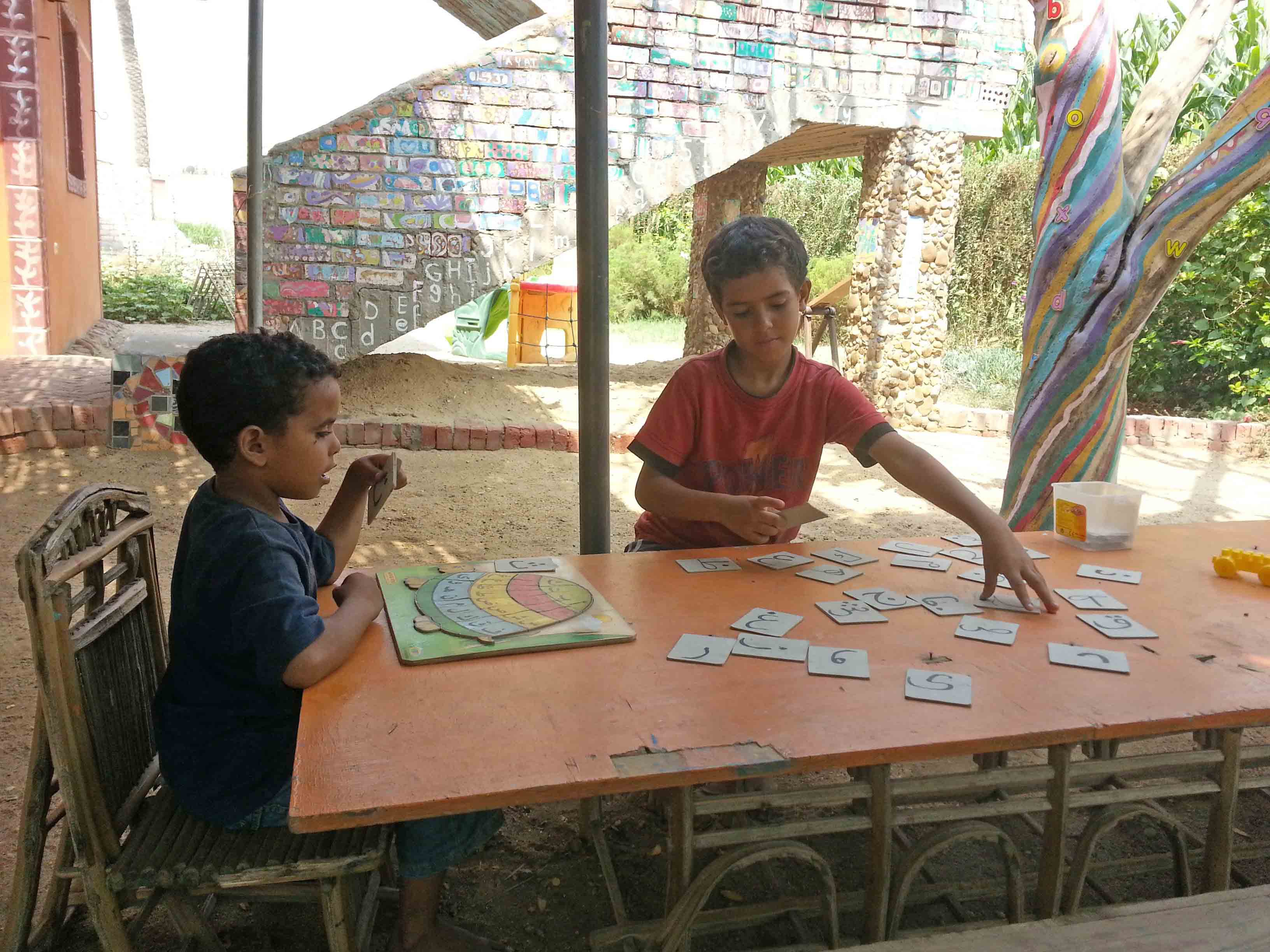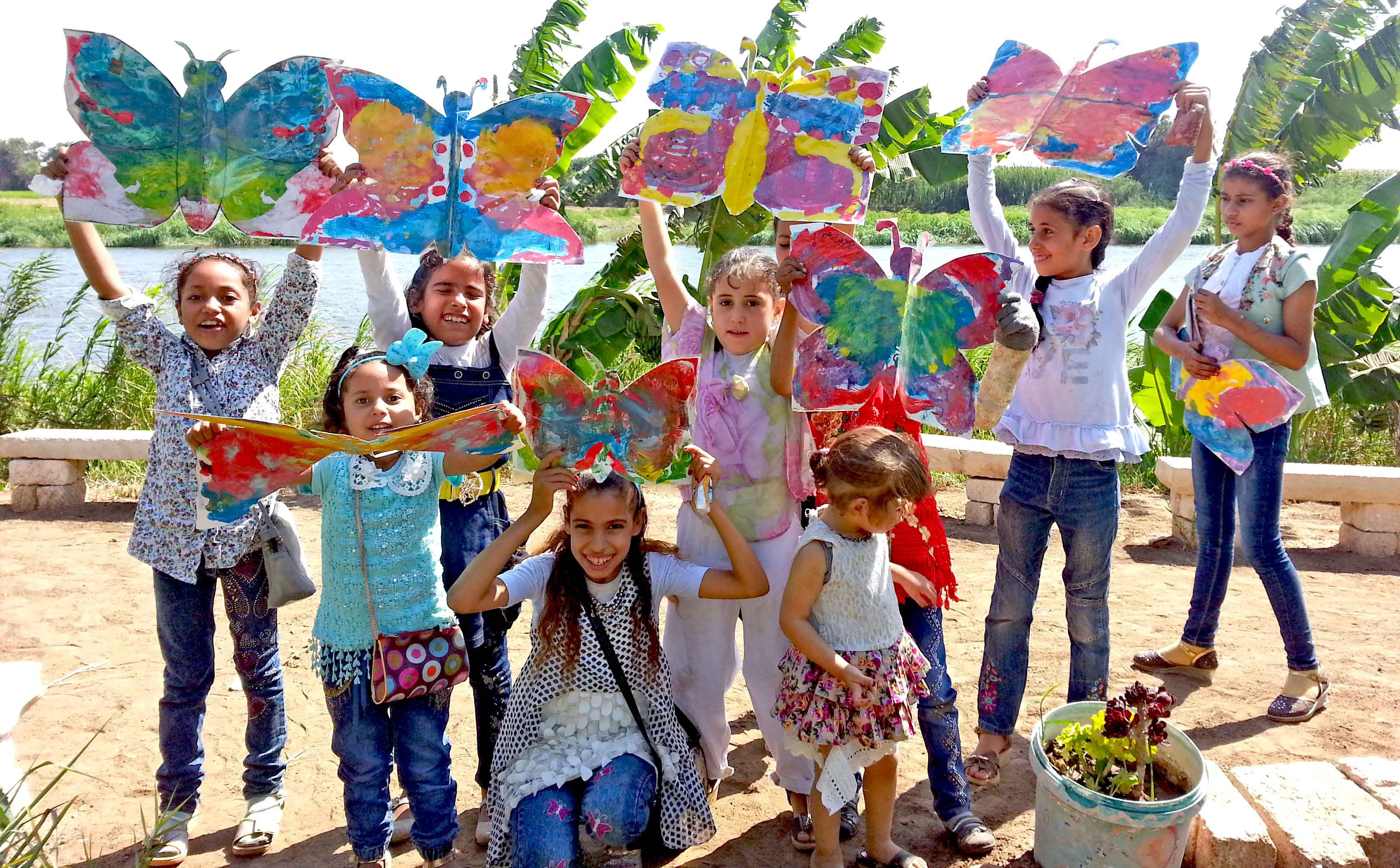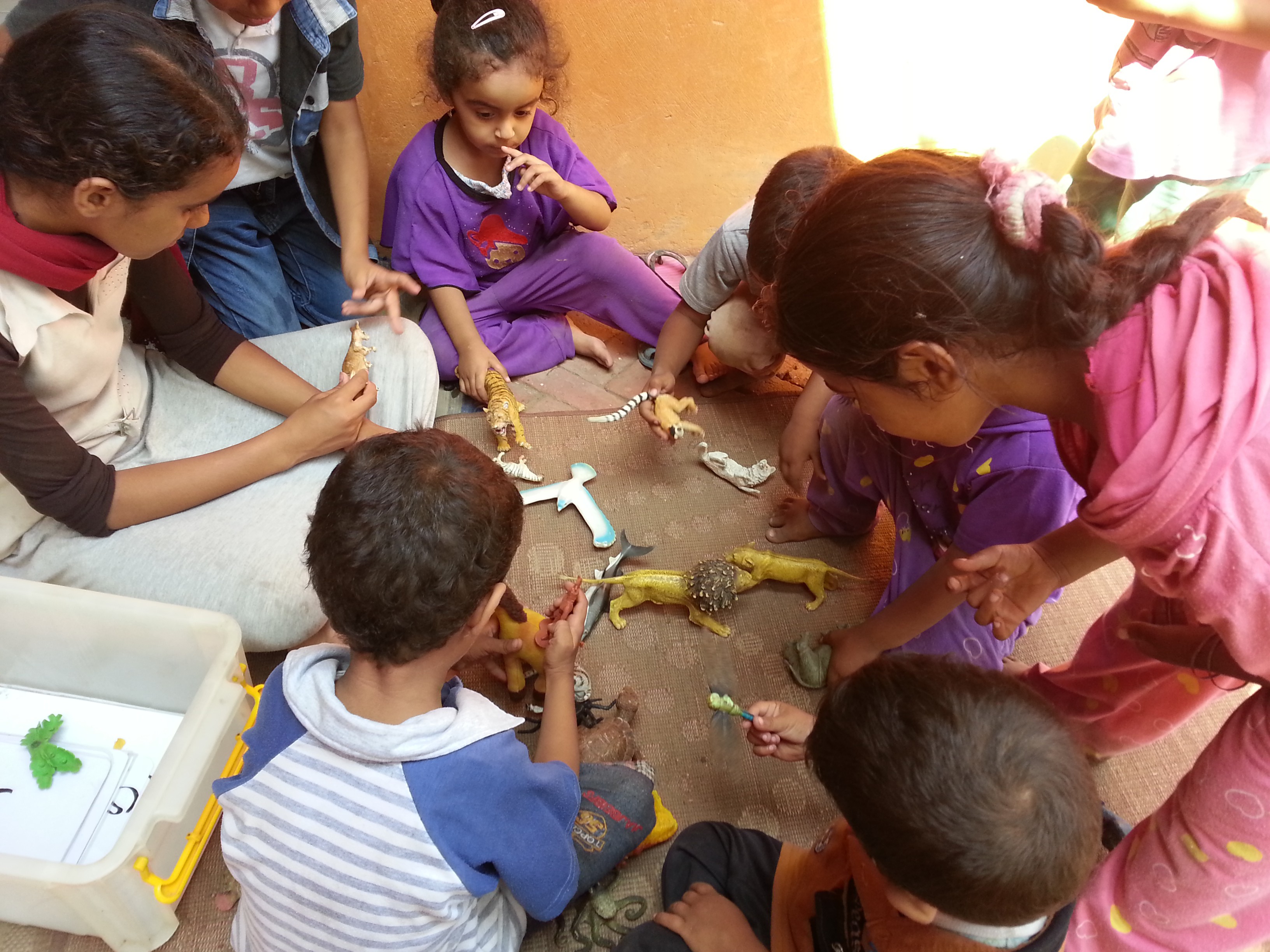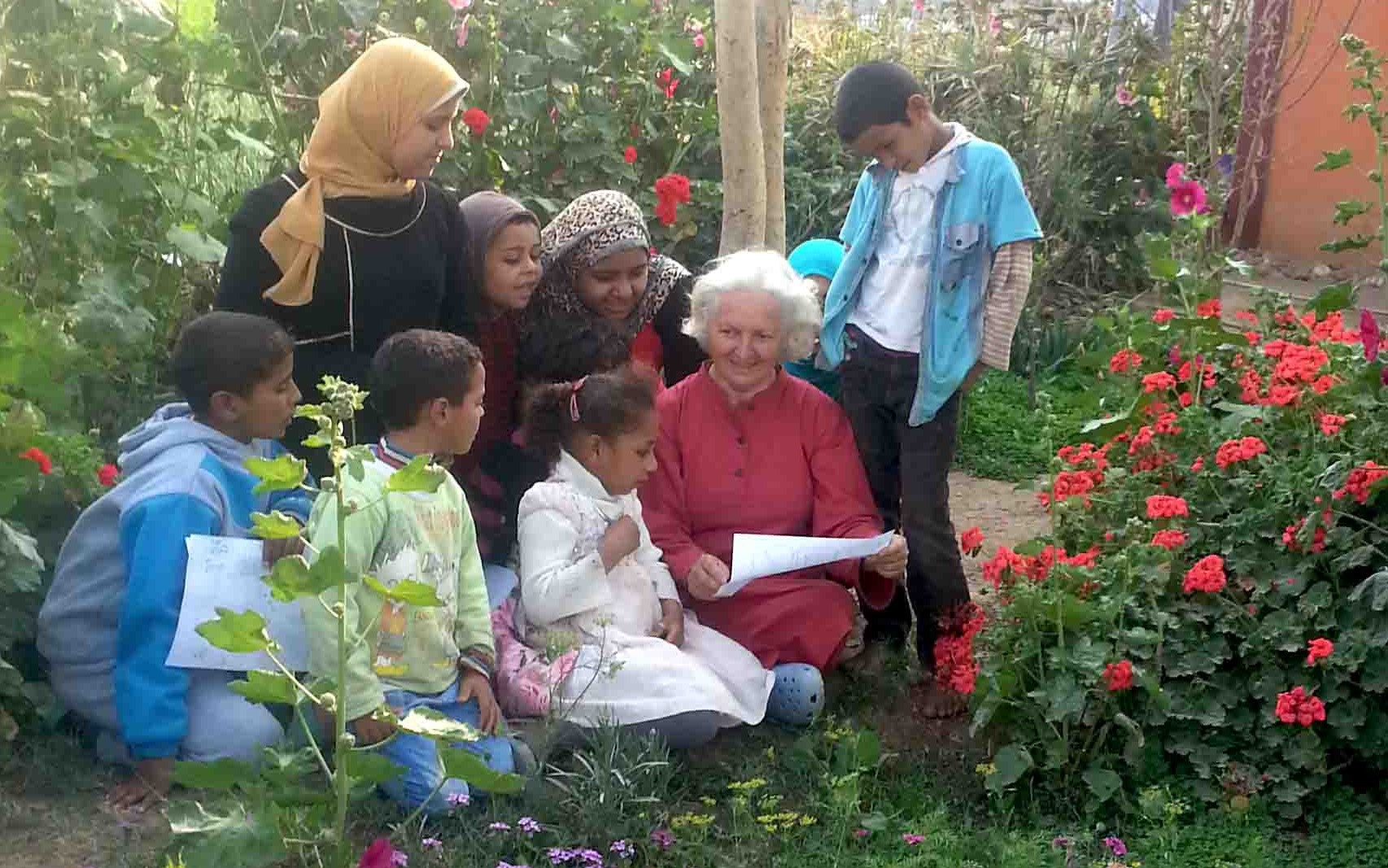In many of the villages along the banks of the Nile, good education can be very hard to come by. In fact, access to any education at all is often limited. After opening progressive schools all around the world, Didi Sandor came to Egypt to spread her educational philosophy by opening the Nile River School, completely transforming the lives of the children of Baharwa.
1) What do you think the importance of education is in children’s lives?
Education is very important! Early Childhood education in particular, despite so often being undervalued, should be the top priority and needs to focus on the psychological needs and all round wellbeing of the child. The purpose of education is not to get certificates or high grades, but to become a truly great human being who is inspired, motivated, creative and confident. I draw my main inspiration from the philosophy of Neohumanist Education, a deeply value-based education system with a network of schools around the world that sees human beings in a loving connection to their ecology and bio-community.
2) You’ve previously built schools in Haiti, the Philippines, Malaysia and Thailand, how has the cross-culture experience affected you?
Human culture is one and the same all over the world, only the expressions vary. I have learnt from the uniqueness of these expressions. It is exciting, interesting, and challenging to work in unfamiliar places, but in the end I come to feel at home in each and every place.
3) What is the ethos of the schools that you start?
It is important to facilitate children becoming responsible for their learning space and learning process. We nurture their thirst for knowledge by providing a stimulating environment and respecting their ‘space’ without disturbance so that they can become explorative and creatively spontaneous.
The specific ethos of Nile River School evolved to be ‘everyone is a teacher and a learner’, as I had to depend on ‘child-teaching-child’ methods a lot as I did not know the Arabic language.

4) What inspired you to come to Egypt?
Knowing that there is a population increase and lots of small children and lots of empty deserts to put up schools. I wanted to experience a new culture that I was not familiar with and I saw it as a challenge to come and find the ‘heart’ of Egypt.
“It was the 2011 events when I really made up my mind to contribute to Egypt in the spirit of solidarity with the hope for change.”
5) Why did this particular location on the Nile resonate with you?
I always have an implanted inspiration to start new schools, so I knew that eventually I would start a school in Egypt. I was coming on a train from Aswan, I was so much drawn to the lush green Nile River banks. Still, I planned on building something in Old Cairo instead, but when friends invited me to Baharwa and the villagers said that they don’t have a school, that’s when I decided to start one here.
6) What has kept you here all these years, despite the economic and political turmoil?
My belief in humanity and God is much stronger than economic and political upheavals. In fact it was the 2011 events when I really made up my mind to contribute to Egypt in the spirit of solidarity with the hope for change, even if it is just a drop.
7) What was the response of your family and friends to you beginning a life of travel and philanthropy?
After my teenage years I anchored myself in a firm spiritual foundation which gave my family peace and trust. Although they would have preferred that I would have stayed closer to them and it took many years for them to accept my unusual lifestyle, they could not obstruct my very independent nature.

8) Schools are complex projects, how were you able to obtain the funding?
The initial costs of the building came from small donations from many friends. Previously, in the other countries somebody would show up and we would do the project together, but here in Egypt, this ‘other’ person just didn’t show up, so I tried to keep things as simple as possible. There are no payments from parents and all the materials are ‘recycled’/donated from friends in Cairo.
“Parents are not accustomed to demand the education they would like to have for their children although they have a right to do that.”
9) What is the biggest problem with education in Egypt?
Grassroots people like parents are not accustomed to demand the education they would like to have for their children although they have a right to do that. They are not empowered to take education into their own hands and bring about changes.
10) What steps need to be taken for these problems to be solved?
There are enough brilliant minds in Egypt who already know what steps need to be taken. Such a big problem needs to be tackled from top-down. From the bottom-up, families need to be part of their children’s education.
11) Do you intend on opening up more schools in the future?
I intend to work on a school project for 300 children in India in a rural area.
12) What has been the most worthwhile moment in your career so far?
For the most worthwhile moment, I can thank my spiritual teacher who inspired my life-long learning process; working with children, youth, parents, and communities is a bonus.
In Egypt the special moment came from many volunteers coming to the village and now they have set up a community school in Baharwa and another one in another village and are planning one more. This is the most inspiring thing for me that people have the confidence that they can contribute, that they can improve the education. browse around this Luxemburg site onlinecasinosluxembourg.com especially if you’re looking for games online.

Find out more about the Nile River School here.

